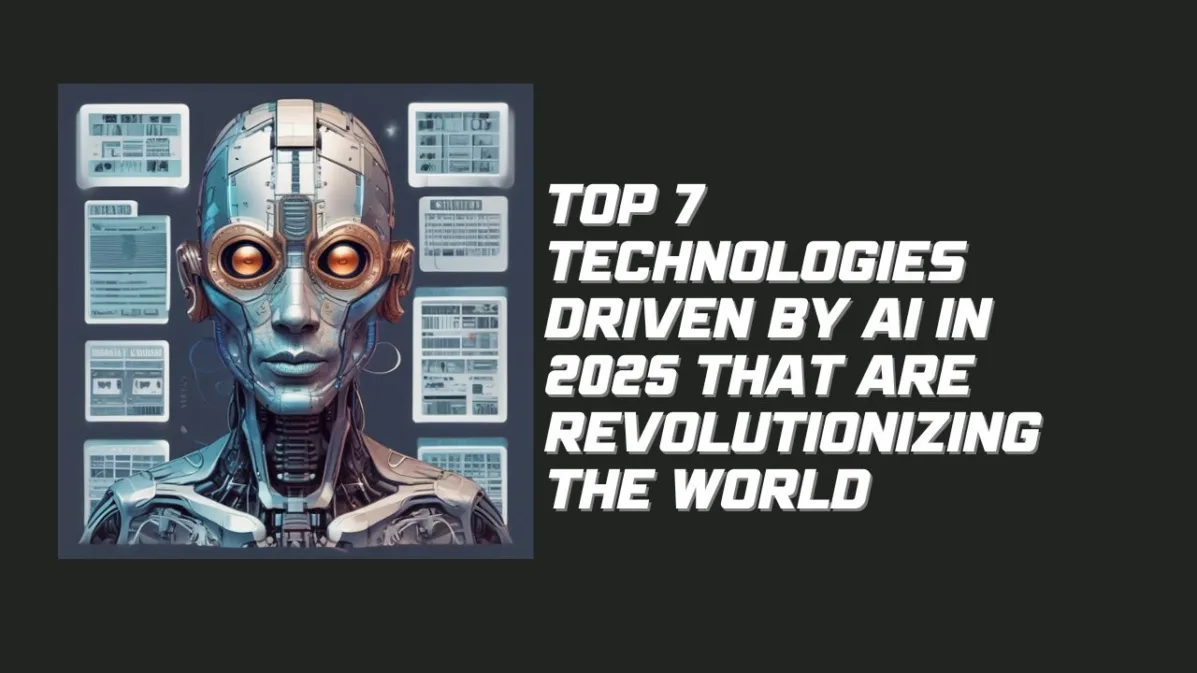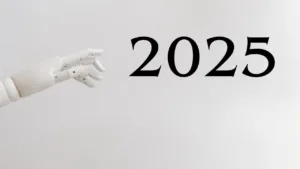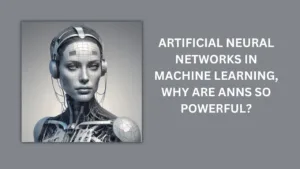As artificial intelligence (AI) continues to grow, it’s fundamentally reshaping industries and everyday life. By 2025, AI-powered technologies will dominate fields ranging from healthcare to cybersecurity. Let’s dive into the top seven AI-driven technologies shaping our future.
1. Natural Language Processing (NLP) and Conversational AI
The field of NLP has advanced significantly, with chatbots and virtual assistants becoming more contextually aware and emotionally intelligent. By 2025, these systems will handle complex conversations, enabling businesses to deliver superior customer experiences. From voice-activated assistants to advanced translation tools, AI ensures seamless communication across platforms.
2. AI in Healthcare: Personalized Medicine
AI has become indispensable in healthcare, especially in diagnosing diseases and formulating treatment plans. Precision medicine uses AI to analyze genetic data and offer customized therapies. Innovations like CRISPR gene editing combined with AI are on track to revolutionize treatments for complex diseases by 2025. This advancement promises faster, more accurate healthcare delivery.
3. Autonomous Systems and Robotics
AI is steering the development of autonomous drones, vehicles, and robots, transforming industries like logistics, manufacturing, and agriculture. For instance, robots equipped with AI can assist in surgical procedures, while drones revolutionize delivery systems. By 2025, these technologies will become more efficient, minimizing human intervention while enhancing safety and productivity.
4. AI and the Metaverse
The metaverse, a shared virtual reality, is heavily dependent on AI for real-time customization and user interaction. AI enables more immersive experiences by adapting virtual environments to user preferences. Businesses are leveraging this for remote workspaces, education, and virtual events, blurring the lines between the physical and digital worlds.
5. AI for Cybersecurity
Cybersecurity is a growing challenge as cyber threats become more sophisticated. AI helps safeguard systems by predicting and mitigating potential attacks in real-time. By 2025, AI-powered tools will dominate cyber defense, providing faster detection and response systems. These technologies enhance data protection and prevent breaches, ensuring safer digital interactions.
6. AI in Green Tech and Sustainability
Sustainability is a global priority, and AI is at the forefront of green innovations. From optimizing energy usage in smart homes to enhancing renewable energy sources like solar and wind, AI significantly reduces carbon footprints. In manufacturing, AI promotes circular economies, reducing waste and promoting environmentally friendly processes.
7. AI-Enhanced Edge Computing
By 2025, the integration of AI with edge computing will enable faster data processing close to the source. This is crucial for real-time applications like autonomous vehicles, IoT devices, and smart cities. The combination enhances efficiency, reduces latency, and supports dynamic decision-making across industries.
Why AI Is the Driving Force of 2025
AI is not just an enabler but a catalyst for innovation. It’s making technologies smarter, more accessible, and more adaptable. From healthcare breakthroughs to metaverse advancements, the role of AI is crucial in creating a future that is both efficient and sustainable.
Frequently Asked Questions
Q: How is AI transforming healthcare?
AI is enabling faster and more accurate diagnoses, personalized treatments, and breakthroughs in genetic research like CRISPR technology.
Q: What industries will AI impact the most by 2025?
AI will dominate healthcare, cybersecurity, autonomous systems, green technology, and the metaverse, among others.
Q: What is edge computing, and why is AI important for it?
Edge computing processes data closer to its source, and AI enhances this by enabling faster decision-making and real-time responses, especially for IoT and smart devices.
Q: How will AI influence sustainability?
AI optimizes energy usage, reduces waste, and enhances renewable energy efficiency, significantly contributing to green technology innovations.
Q: Can AI fully replace humans in industries?
While AI automates routine tasks, it’s expected to complement human roles, allowing individuals to focus on creative and strategic tasks.



